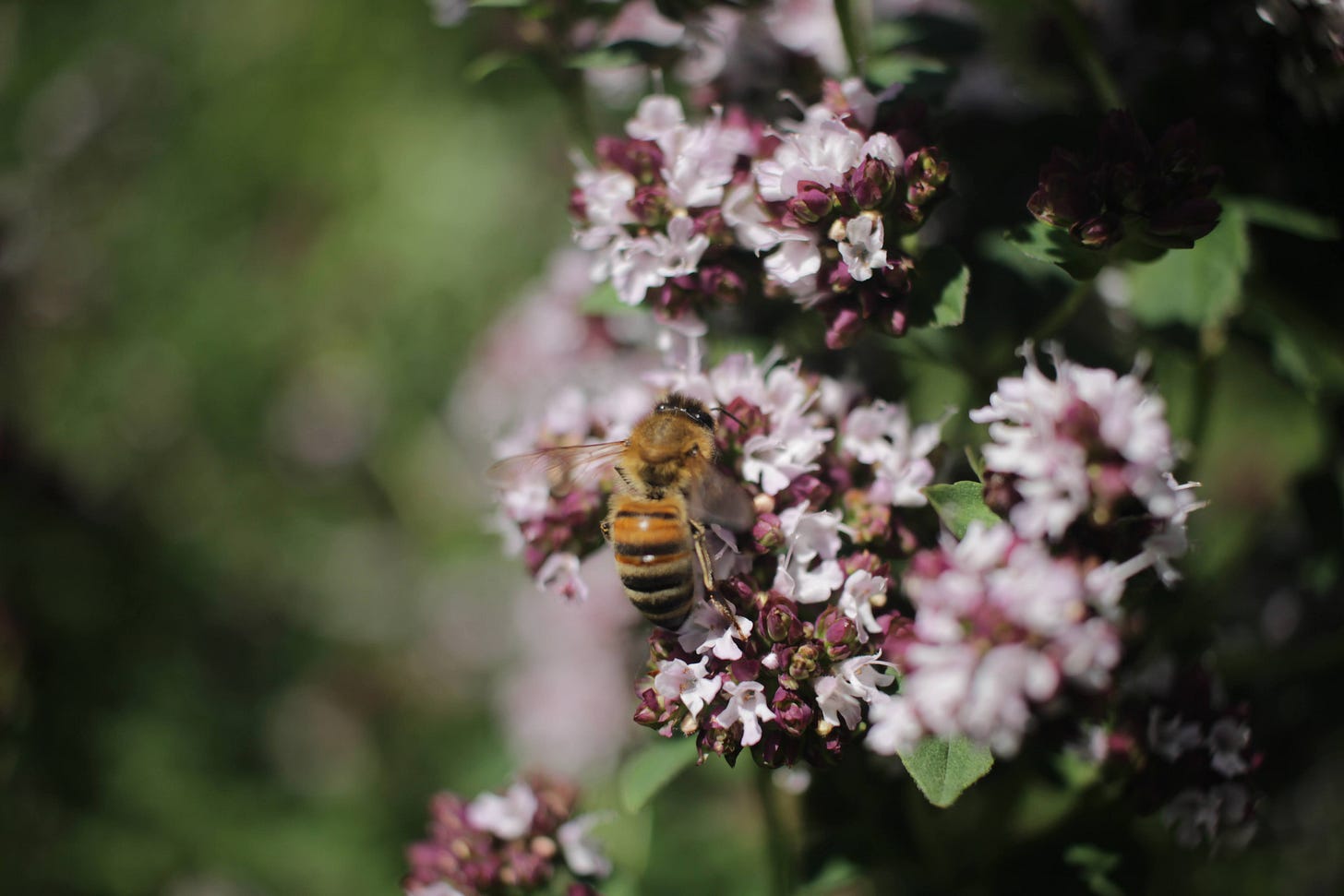Bees.
More interesting than BuzzFeed
It’s a warm, sunny afternoon in May when I stop in my tracks, surprised by the number of bees floating around me. The bush beside the path reveals why.
A swarm of bees.
Isn’t it magnificent?
I’ve never seen a swarm of bees before. They huddled, vibrating in the sunlight, in a column maybe two feet tall. Honeybees, I believe. I’m by no means an apiculturist and I had to look up why bees swarm, so you can thank the British Beekeepers Association for any handy tidbits you might come away with today.
Swarming is, I was glad to learn, completely natural and a part of the honeybees’ reproductive cycle. Essentially it involves the queen leaving the hive and hanging out in a sheltered spot while the scouts search for a place to build a new nest. Out in the open, they’re much less likely to sting and would rather keep to themselves, so bee swarms are not usually dangerous. I was happy to just sit and watch them for a while, a living, writhing blob of golden fuzz. Wonderful.
I think humans have a strange relationship with bees.
They’re valuable pollinators. We all know this. Every third mouthful of food we eat is thanks to a hardworking bee. Acording to the Wildlife Trusts:
Honeybees are mostly kept in managed hives, and are likely responsible for pollinating between 5-15% of the UK's insect-pollinated crops. That leaves 85-95% of the UK’s insect-pollinated crops relying on wild pollinators. Many species of bee, moth, butterfly, hoverfly, fly and beetle provide an essential service in the UK (and globally) pollinating £690 million worth of crops annually.
Despite this, farmers have a habit of decimating bees and other flying insects with choking clouds of pesticides. You might think that it’s completely stupid for a government to allow the continued use of pesticides that are knowingly deadly to bees despite them being responsible for a significant amount of our food and propping up the economy, and you’d be right. But that doesn’t stop them.
Despite these busy little boys buzzing around, collecting pollen and focused on not much more than keeping our ecosystems running, I regularly see grown adults scream and flee in terror whenever a bee floats past. Why? I have no idea. Because they have the capacity to sting, maybe? Unless you’re one of the extremely unfortunate five people per year to die of a bee or wasp sting (that’s 0.000008% of the population), you should probably just relax.
We know that bees are in trouble. The unholy trinity of climate change, habitat destruction and chemical use have made a serious dent in bee populations. Plantlife reckons an average of 11 species of bee have been lost from every square kilometre in the UK, mainly thanks to the catastrophic loss of our wildflower meadows.
That’s why it’s been so inspiring to see No Mow May in full swing this year. More and more gardeners are abandoning their mowers, turning their backs on their lawns, and creating wonderful habitats packed full of wildflowers to help our struggling yellow friends. We know that without them we’d be in trouble, and I go to sleep each night hoping that humans wake up with the desire to live harmoniously with these incredible creatures.
I visited the swarm twice to see how it was getting on, and watched the scouts coming and going. When I checked this afternoon, it had gone. Generally bee swarms only hang around for a few hours, a day at most, until the scouts report a suitable location of a new nest and they go off together, a cloud of ecosystem heroes on the wind.
I wished them good luck and godspeed.




